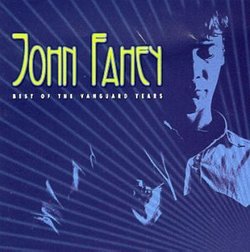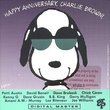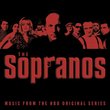| All Artists: John Fahey Title: Best of the Vanguard Years Members Wishing: 5 Total Copies: 0 Label: Vanguard Records Original Release Date: 7/27/1999 Re-Release Date: 7/7/1999 Genres: Country, Blues, Folk, Jazz, Pop Styles: Traditional Blues, Acoustic Blues, Traditional Folk, Contemporary Folk, Traditional Jazz & Ragtime Number of Discs: 1 SwapaCD Credits: 1 UPCs: 015707952323, 090204850624 |
Search - John Fahey :: Best of the Vanguard Years
 | John Fahey Best of the Vanguard Years Genres: Country, Blues, Folk, Jazz, Pop
Dark, brooding, and adventurous, John Fahey stands alone among 1960s folk guitarists. An avid record collector and Delta blues revivalist, Fahey somehow absorbed his influences without succumbing to them, remaking them in ... more » |
Larger Image |
CD DetailsSynopsis
Amazon.com Dark, brooding, and adventurous, John Fahey stands alone among 1960s folk guitarists. An avid record collector and Delta blues revivalist, Fahey somehow absorbed his influences without succumbing to them, remaking them in startlingly new ways (nowhere more evident than on his moving "Requiem for John Hurt" and the contemplative "View [East from the Top of the Riggs Road B & O Trestle]"). An excellent guitarist, Fahey's real talent lies in his ability to create strangely memorable melodies out of atypical chord progressions, odd tunings, and found noises. Even at its most esoteric, Fahey's music is never anything less than captivating and often it is simply beautiful. At times, it's even funny, as in his peculiar nod to pop culture, "Requiem for Molly (Part 3)"--a wry, understated instrumental rendition of the Mamas and Papas' hit, "California Dreamin'," set to a meandering collage of taped noises. Although titled Best of the Vanguard Years, this collections brings together all but two songs from his years with Vanguard. Still, Fahey is a unique talent and these recordings capture him at his unique, and essential, best. --Percy Keegan Similarly Requested CDs
|
CD ReviewsFeed your head. George H. Soule | Edwardsville, Illinois United States | 11/18/2002 (5 out of 5 stars) "If know Michael Hedges and Leo Kottke and you've heard of John Fahey and have some interest, this is a good representation of his work. The title is misleading. John Fahey recorded "Requia and Other Compositions for Guitar" (1967) and "The Yellow Princess" (1968) for Vanguard working with Samuel Charters during a brief hiatus from Takoma, his own label, and most of the albums are on this CD. These two albums exemplify Fahey's inventiveness and originality. Fahey's original compositions use the tools of the folk tradition that he studied and mastered. Fahey amplifies and expands blues, rags, folk song, and spirituals--American folk melodies--with elements of Eastern music (the odd raga coexists with the rag) and experimental sampling. The individual compositions fuse familiar musical elements into collages of sound, miniature suites of known tunes and original melody. Fahey experiments with form as well as sonic texture, modifying tempi and improvising at will. The CD contains the whole of "The Yellow Princess" and begins with the title track of that album. "Yellow Princess" showcases Fahey's arsenal of folk guitar technique. Here Fahey's pattern picking shows his usual verve as he chooses occasional mismatches of open tuning for modal discords. "View (East from the Top of the Riggs Road B&O Trestle)" is a haunting ballad. "Lion" begins as a rag and changes tempi and direction--embedding "Swing Low, Sweet Chariot" as a major theme. "March! For Martin Luther King" is a march for guitar, featuring regimental drum. "The Singing Bridge of Memphis, Tennessee" features sampled recordings of the clanks of vehicles crossing the bridge; the clashing sound of flexing structural joints; and the wind-harp moan of wind blowing through the bridge support cables. "Dance of the Inhabitants of the Invisible City of Blandensburg" is equally experimental, a fusion of Eastern and Western techniques. The composition begins as a raga with sitar-like guitar and transitions to pattern picking with ascending scales moving under the pattern. You're never sure what you will hear in these Fahey compositions. "Irish Setter" begins with slow minor chords, moves from a rag, to cascading scales, to minor chords with exquisite internal harmonies, and thence to single note lines. These are indeed compositions. "Commemorative Transfiguration and Communication" is a pick fest, alluding to "Shortnin' Bread" with broad strummed chords configured with breaks of fancy picking that include "Ye watchers and ye holy ones," a 17th century hymn, "Vigiles et sancti." The selections from "Requia" are equally compelling. The masterpiece in this anthology may be Fahey's "Requiem for John Hurt." This composition is elegiac at the beginning, evolving into joyful picking: a fitting memorial for the blues master it honors. "Requiem for Russell Blaine Cooper" features wonderful echoing harmonics and fine finger picking. In "When the Catfish is in Bloom" Fahey uses traditional finger picking styles to imitate the accents and effect of Celtic bagpipes and then races in spectacular tempi to demonstrate his improvisational power. "Fight on Christians, Fight On" is a short bottleneck composition containing echoes of "Swing Low, Sweet Chariot" and "When the Saints Go Marching In." The album closes with two sections of Fahey's "Requiem for Molly." These use considerable sampling--not far removed from the Beatles' experiments. Part 3 contains Fahey's interpretation of "California Dreaming" complete with barking seals." For Those So Unfortunate As To Be So Young ... Morgaan Sinclair | Washington, DC, Home of the Brave | 11/17/2004 (5 out of 5 stars) "... as not ever to have heard John Fahey during the Vanguard Years, this album is the cure to the terrible deprivation visited upon you by the tenderness of your years. The only guitarist even capable of open-tuning American Primitive Guitar, the sheer brilliancy of John Fahey is unparalleled and will forever be unmatched. It is a "Spiegel im Spiegel" -- a mirror within a mirror -- of endless dimensionality. If you hear only one thing this man played in his life, let it be "When the Catfish is in Bloom." Sound funny? It's as deep as an ocean.
There is not, there never was, there never will be again another John Fahey. And this album is about the best work he ever did. Don't let your life slip away without hearing this. It is a kind of accompaniment to a place everyone goes if they're lucky. Deep in the mind, somewhere in the back recesses of the best of your heart, this 12-string strummed by a genius sings your song." |

 Track Listings (15) - Disc #1
Track Listings (15) - Disc #1






